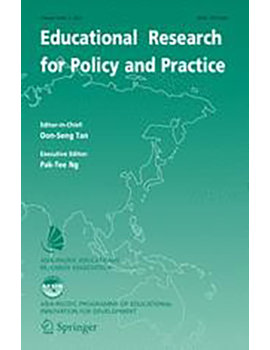
Upper Secondary School Tracking and Major Choices in Higher Education: To Switch or Not to Switch
This study aims to investigate the characteristics of students who switch versus those who do not switch when they transition from upper secondary to higher education. The data from 1338 students randomly selected from 21 HEIs in Cambodia in 2020 found that upper secondary school students are more likely than not to switch academic majors when they...
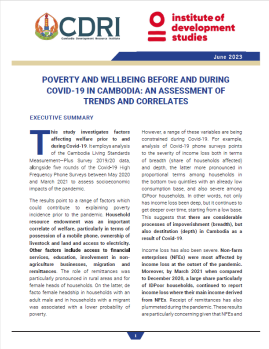
Poverty and Wellbeing Before and During Covid-19 in Cambodia: An Assessment of Trends and Correlates
This study investigates factors affecting welfare prior to and during Covid-19. It employs analysis of the Cambodia Living Standards Measurement—Plus Survey 2019/20 data, Frequency Phone Surveys between May 2020 and March 2021 to assess socioeconomic impacts of the pandemic. The results point to a range of factors which could contribute to expla...
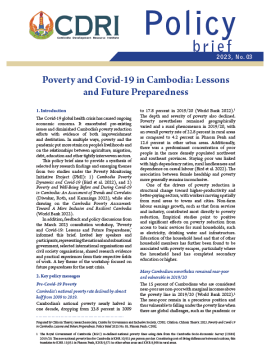
Poverty and Covid-19 in Cambodia: Lessons and Future Preparedness
The Covid-19 global health crisis has caused ongoing economic concerns. It exacerbated pre-existing issues and diminished Cambodia’s poverty reduction efforts with evidence of both impoverishment and destitution. In multiple ways, poverty and the pandemic put more strain on people’s livelihoods and on the relationships between agriculture, migratio...
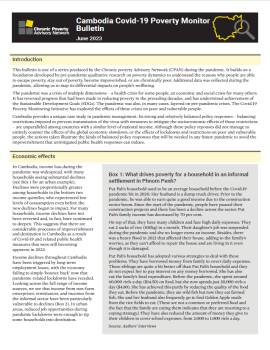
Cambodia Covid-19 Poverty Monitor Bulletin
This bulletin is one of a series produced by the Chronic poverty Advisory Network (CPAN) during the pandemic. It builds on a foundation developed by pre-pandemic qualitative research on poverty dynamics to understand the reasons why people are able to escape poverty, stay out of poverty, become impoverished, or are chronically poor. Additional da...
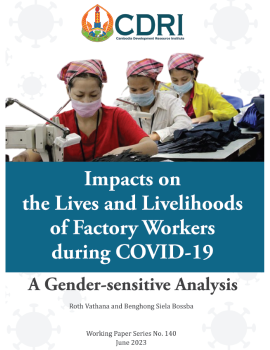
Impact on the Lives and Livelihoods of Factory Workers during COVID-19
This study examines the gendered impacts of COVID-19 on Cambodia’s garment, textile, and footwear (GTF) sector, which employs around 800,000 workers—80 percent of whom are women. Using data from a phone survey of 2,000 workers conducted in mid-2021, the study explores changes in earnings, consumption, remittances, mental health, domestic responsibi...
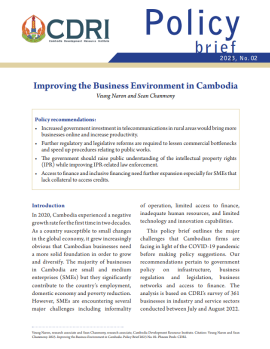
Improving the Business Environment in Cambodia
In 2020, Cambodia experienced a negative growth rate for the first time in two decades. As a country susceptible to small changes in the global economy, it grew increasingly obvious that Cambodian businesses need a more solid foundation to grow and diversify. Most businesses in Cambodia are small and medium enterprises (SMEs) but they significantly...
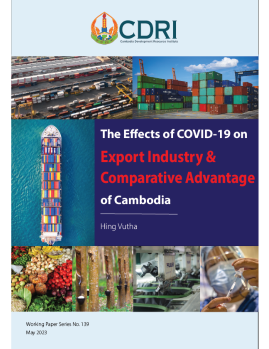
The Effects of COVID-19 on the Export Industry and Comparative Advantage of Cambodia
The repercussions of COVID-19 resulted in global disruptions to supply and demand as well as shocks to the global production networks. This paper employs a trade analysis approach to assess the impacts of coronavirus on Cambodia’s export performance. Utilising Revealed Comparative Advantage (RCA) index, changes were analysed using data pre-and post...
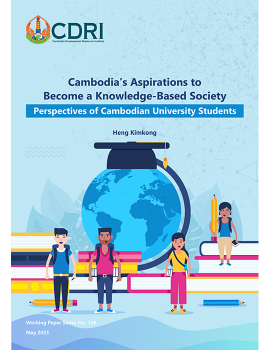
Cambodia’s Aspirations to Become a Knowledge-Based Society: Perspectives of Cambodian University Students
This study explores Cambodian university students’ perspectives on the country’s aspirations to become a knowledge-based society, a goal aligned with Cambodia’s vision to achieve upper-middle-income status by 2030 and high-income status by 2050. Using qualitative methods, including semi-structured interviews with 20 students from public and private...

Cambodian Upper Secondary School Education amid COVID-19 Pandemic: Challenges and Opportunities
This study investigates the multifaceted impacts of the COVID-19 pandemic on Cambodian upper secondary school education, focusing on academic, economic, and mental health challenges, as well as emerging opportunities. Drawing on survey data from 685 teachers and 2,804 students across Cambodia, the research reveals widespread disruptions in teaching...
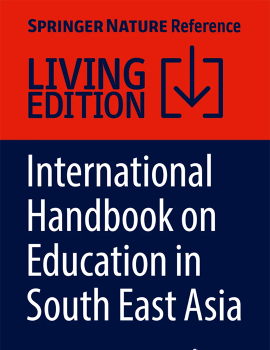
Vocational Education and Training in Cambodia
The Royal Government of Cambodia acknowledges the vital role of technical and vocational education and training (TVET) in developing a high-quality workforce to better respond to labor market demand and contribute to the national development agenda. In the past decade, with support from and collaboration with development partners, the Government ha...
